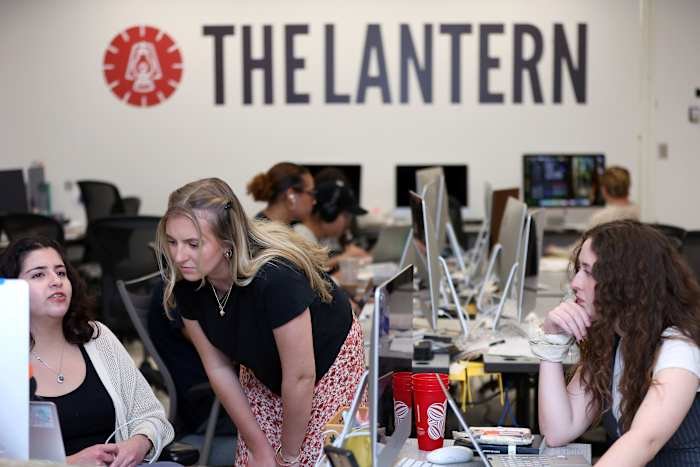The U.S. coal industry has been at the center of political and economic debate for years, especially as its decline continues to reshape communities across the country. With recent proposals from President Donald Trump’s administration aiming to revive the sector, many are wondering what this could mean for cities far from the coalfields—like Orlando. At Daily Orlando News, we’re taking a closer look at the national coal conversation, how proposed changes might ripple into Central Florida, and what residents need to know.
The Steady Decline of America’s Coal Industry
Coal once fueled America’s industrial growth, but its role has been shrinking for decades. Automation, competition from natural gas and renewables, and environmental regulations have all contributed to a dramatic drop in coal production and employment. According to the U.S. Energy Information Administration, coal-fired power plants provided nearly half of America’s electricity in 2008—by 2023, that number had fallen to less than 20%.
While coal mining states like West Virginia and Kentucky have borne the brunt of this decline, the effects have been felt across the nation. Power grids are shifting, energy prices are fluctuating, and the economic landscape is evolving even in places without a single coal mine—like Orlando.
President Trump’s Policies: What’s Changing?
Since taking office, the Trump administration has rolled out several initiatives designed to revive coal. These include rolling back the Clean Power Plan, reducing restrictions on coal-fired power plants, and easing mining regulations. The stated goal is to make coal more competitive and preserve jobs in the industry.
Supporters argue these changes could lower energy costs and bolster national energy independence. Critics, however, warn that rolling back environmental protections could worsen air pollution and climate change, with long-term health and economic consequences.
For Orlando residents, the key question is whether these national policies will impact local energy prices, job opportunities, or the region’s environment. With Florida’s energy mix already shifting toward natural gas and renewables, the answer is more complex than it may seem.
How National Coal Policies Affect Orlando’s Energy Mix
Orlando, like much of Florida, relies primarily on natural gas for electricity. According to Florida Power & Light and the Orlando Utilities Commission, coal accounts for less than 10% of the city’s electricity. However, coal’s influence is still felt through the broader energy market.
- Energy Prices: Changes in national coal policy can affect the prices of competing energy sources. If coal sees a resurgence, natural gas prices may shift, which could eventually influence local utility bills.
- Air Quality and Health: Coal-fired power plants are among the largest sources of air pollution. While Orlando is not home to major coal plants, pollution from plants in other parts of Florida and the Southeast can drift into the region, affecting air quality and public health.
- Infrastructure Investments: Utilities are planning for the future, and uncertainty around coal regulation can impact decisions to invest in renewables, energy storage, or new natural gas facilities in Central Florida.
Ultimately, while Orlando isn’t a coal town, the city’s residents are connected to the national conversation through utility bills, air quality, and infrastructure decisions.
Economic and Environmental Impacts for Orlando
One of the most direct effects of coal policy shifts for Orlando may be felt in the job market and tourism sector. Florida’s booming tourism economy depends on clean air and water. Any increase in regional pollution could threaten the state’s reputation as a healthy, desirable destination for families and retirees.
On the other hand, efforts to revive coal could slow the growth of renewable energy jobs in Florida, including solar panel installation and energy efficiency upgrades—industries that are rapidly expanding across the state.
Orlando has positioned itself as a “City Beautiful,” with ambitious sustainability goals and a commitment to growing its green economy. The city’s leaders have invested in solar energy, electric vehicle infrastructure, and climate resilience initiatives. National policies that favor coal over clean energy may create headwinds for these local priorities.
What’s Next for Orlando Residents?
While the fate of U.S. coal remains uncertain, Orlando’s future will likely be shaped more by state and local choices than by federal coal policy alone. Still, it’s important for residents to stay informed about how national energy debates could affect air quality, electricity prices, and job opportunities in Central Florida.
Orlando’s commitment to clean energy and sustainability puts it ahead of the curve, but changes at the federal level can still influence the pace of progress. As the story of coal in America continues to unfold, Daily Orlando News will keep you updated on how these developments impact our city and our families.
Conclusion: Share Your Thoughts with Us
The decline of the U.S. coal industry and the Trump administration’s efforts to revive it are topics with far-reaching consequences—even here in sunny Orlando. What do you think about the future of energy in our city? Are you concerned about air quality, electricity bills, or the growth of clean energy jobs? Let us know your thoughts in the comments below, and join the conversation about Orlando’s energy future!
















